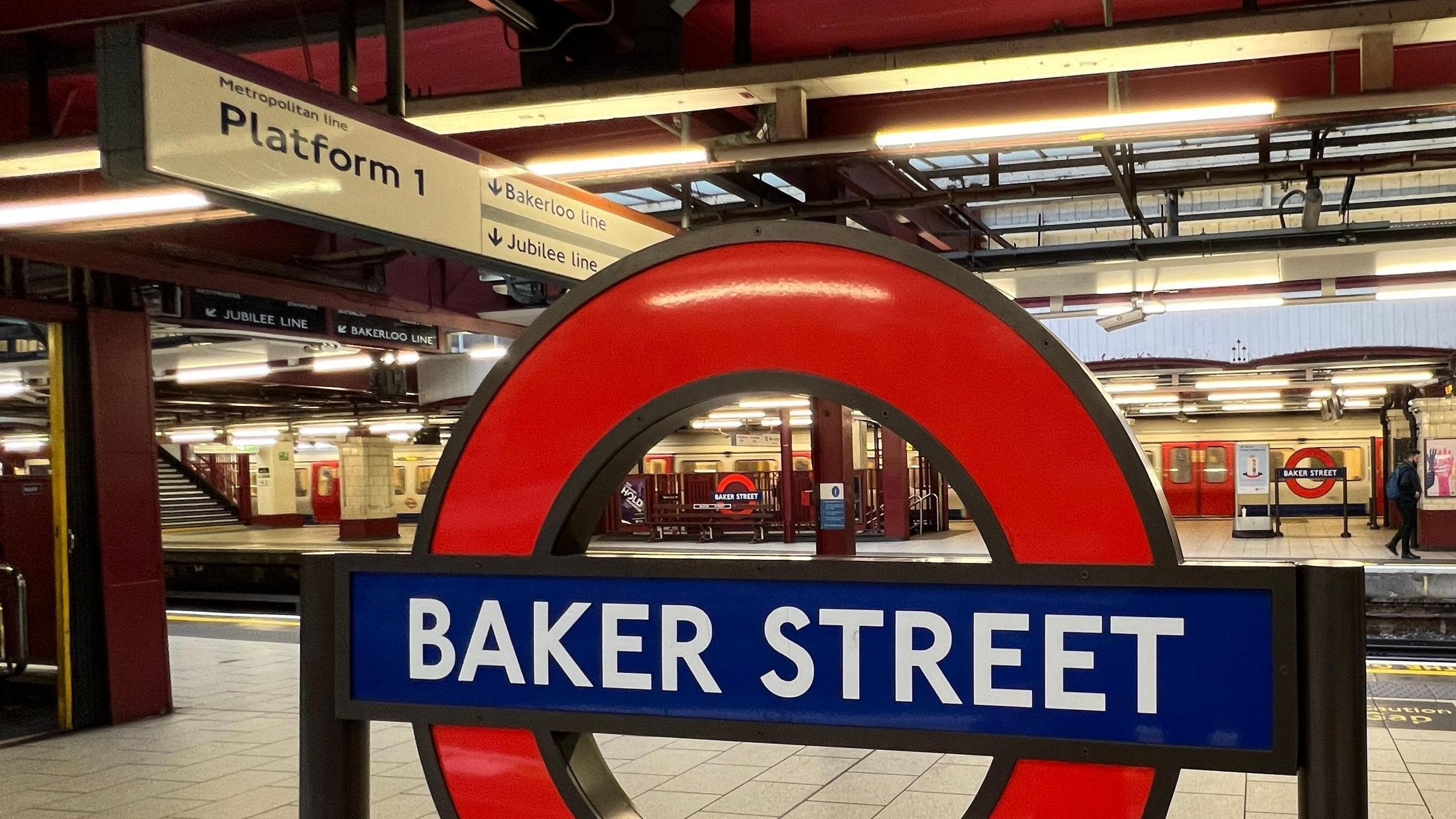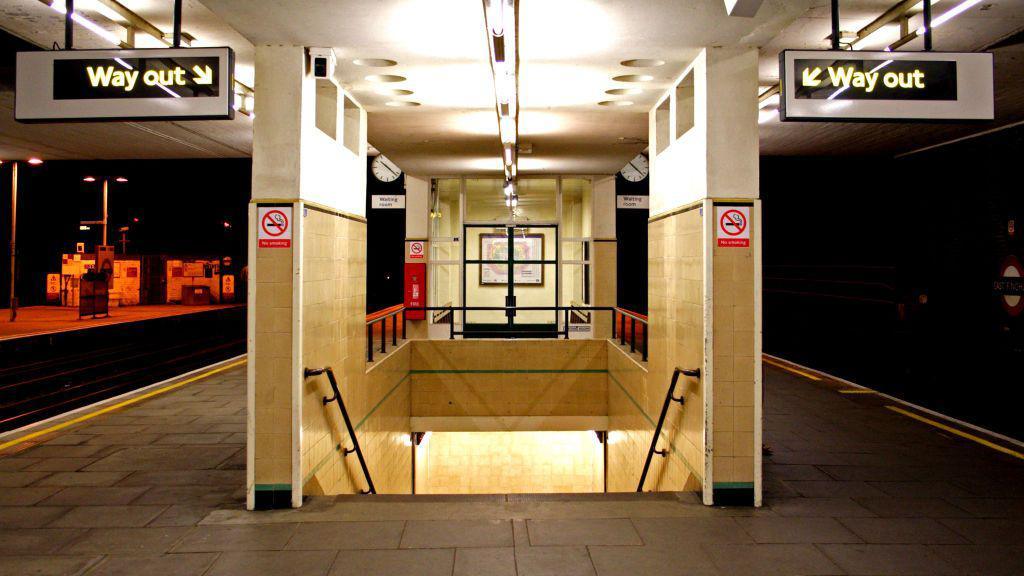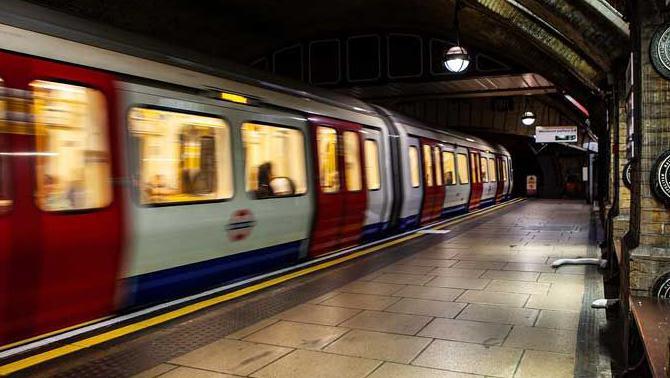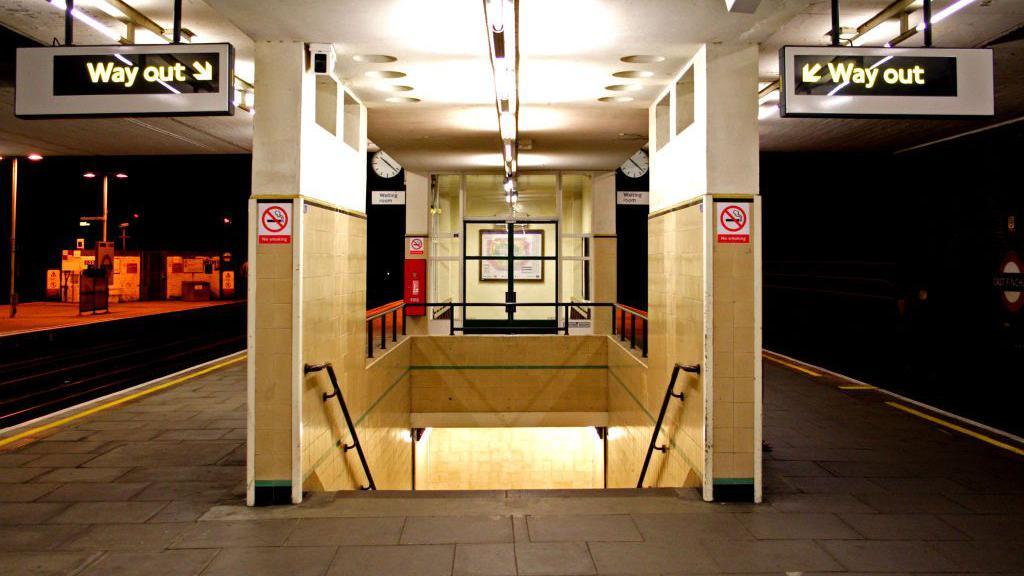Tube pusher not guilty due to insanity - jury

Kenlyn's first attack took place at Baker Street Tube station
- Published
A man accused of three attacks at London Underground stations, including pushing a passenger on to the tracks, has been found not guilty by reason of insanity on some counts.
Psychiatrists had told a jury at the Old Bailey Donovan Kenlyn, 39, was suffering from schizophrenia when he allegedly attacked three people at three different stations within 35 minutes on 27 October 2022.
The jury's decision at the same court on Thursday is known as a "special verdict" and does not mean Kenlyn has been acquitted.
Instead, he could face a hospital order when is sentenced, for which a date has not yet been confirmed.

One man was pushed on to the track at Finchley Road Tube station
Kenlyn was accused of punching Tube passenger Samer Jawad at Baker Street station and causing Angel Cambeiro to fall on to the tracks at Finchley Road.
He was also accused of punching Peter Acton at West Hampstead station, a jury at the Old Bailey was told.
Kenlyn had denied attempted murder, assault causing grievous bodily harm with intent, grievous bodily harm without intent, assault occasioning actual bodily harm and assault by beating because he was suffering with "active" schizophrenia that caused him to falsely believe he was under threat.
Jurors were asked to consider whether he was too unwell to know if his behaviour was wrong, and whether he intended to injure Mr Cambeiro.
Kenlyn was cleared of the attempted murder and of causing grievous bodily harm with intent to Mr Cambeiro.
An alternative charge of causing grievous bodily harm without intent to Mr Cambeiro was added on Tuesday and jurors found Kenlyn not guilty by reason of insanity of that count.
He was also found not guilty of assault occasioning actual bodily harm to Mr Acton and of assault by beating against Mr Jawad.
'Heightened threat'
The court heard during the trial that at the time of the incident, Kenlyn was a living alone and not receiving any treatment for his mental health condition.
Consultant forensic psychiatrist Dr Bradley Hillier previously told the court Kenlyn carried out the attacks while in a psychosis-induced "threat-control-override" state.
"Usually people obviously don’t act violently. But in a state where somebody is experiencing heightened threat in their environment, their ability to control their behaviour in terms of violent behaviour is reduced," he said.
He added: "He thought he was defending himself – and didn’t think that it was wrong because he was subject to an attack.
"And that’s what we believe Mr Kenlyn was doing in terms of trying to defend himself."
Kenlyn has been in custody since his arrest in 2022.
Follow BBC London on Facebook, external, X, external and Instagram, external. Send your story ideas to hellobbclondon@bbc.co.uk, external
Related topics
- Published17 June 2024

- Published13 June 2024
